Photos: Helping hands in Haiti
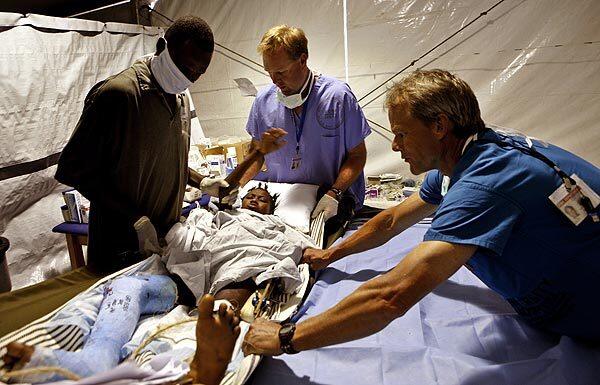
Matt Cobb, center, and Jim Clark, right, both from the Larkspur Fire Department, assist at the field hospital run by the
Two Bay Area firefighters have gone on their own to help in quake-devastated Haiti.
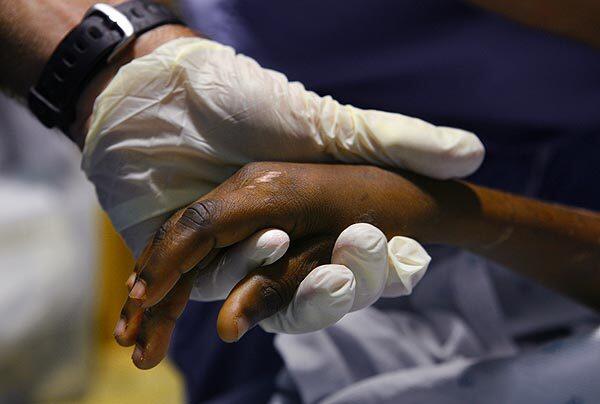
Matt Cobb, who is 41, holds the hand of a young girl as she gets medical treatment at the University of Miami field hospital at Port-au-Prince airport. He and colleague Jim Clark, both captains in the Larkspur Fire Department, are paying their own way, using vacation days to volunteer in Haiti. (Carolyn Cole / Los Angeles Times)
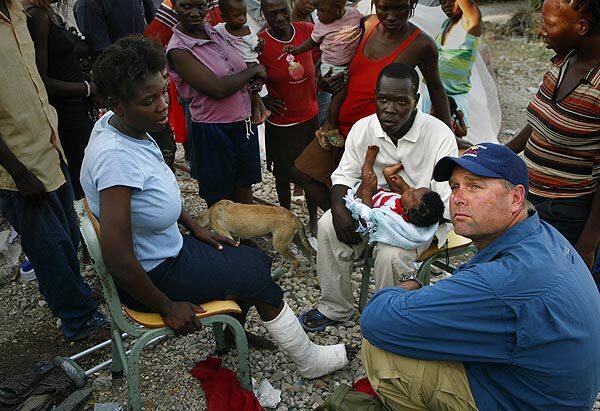
Matt Cobb checks on a woman at a refugee camp; he encouraged her to go to the hospital to get a cast on her ankle for an earthquake-related injury. He and Clark, unaffiliated with any aid organization, arrived on their own with cash to help and a huge duffel bag packed with medical supplies. (Carolyn Cole / Los Angeles Times)
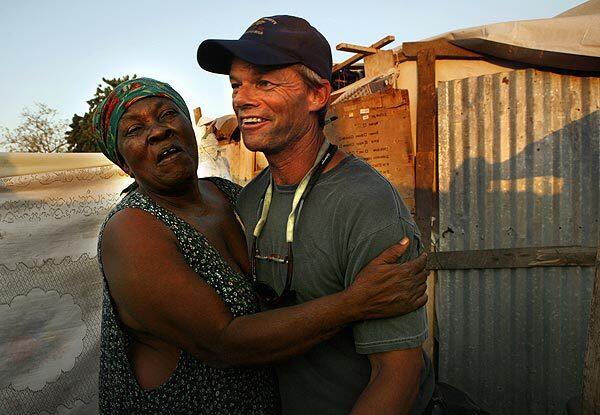
Jim Clark gets a hug from a woman he had helped on a previous visit to a camp for displaced persons in Port-au-Prince. (Carolyn Cole / Los Angeles Times)
Advertisement
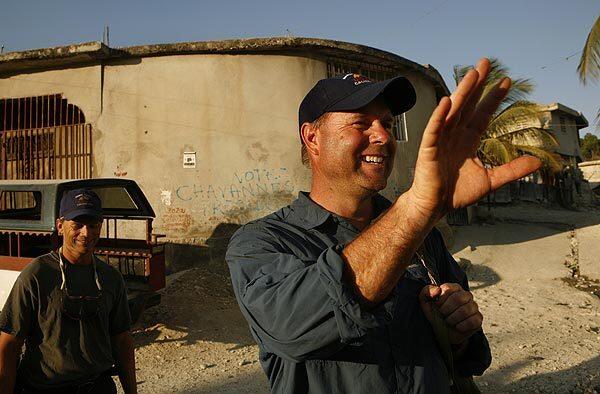
Matt Cobb, with Clark, waves at some friends in Port-au-Prince. Their 12-day stay was an oddity amid the massive, organized relief efforts. (Carolyn Cole / Los Angeles Times)
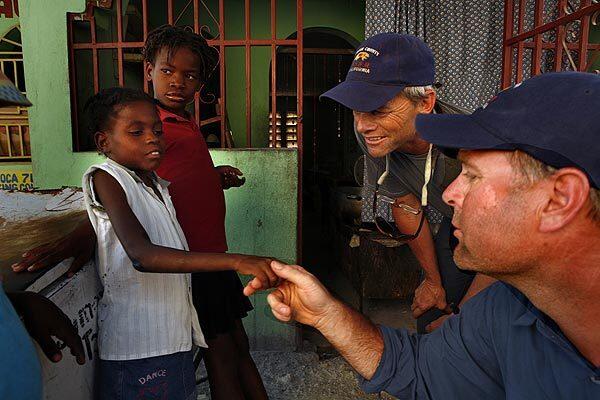
Matt Cobb, 41, right, and Jim Clark, 53, check a young girl with burn wounds in the neighborhood near their hotel, not far from the airport. (Carolyn Cole / Los Angeles Times)
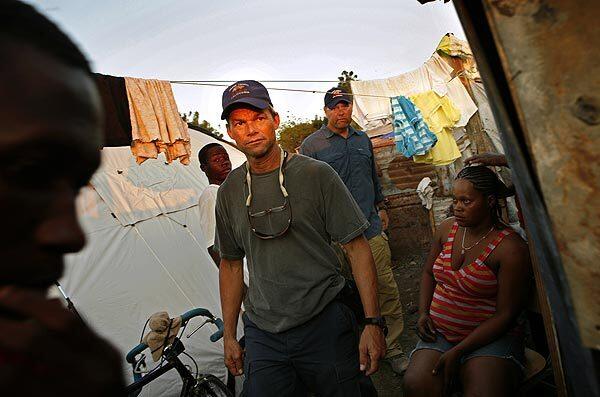
Firemen Jim Clark, center, and Matt Cobb visit one of the hundreds of makeshift tent encampments that have popped up across the city since the Jan. 12 earthquake. Before departing for Haiti, Clark scribbled a set of rules for himself: Be humble. You can´t save the whole world. Don´t promise anything you can´t deliver. The only difference between you and them is where you were born. (Carolyn Cole / Los Angeles Times)
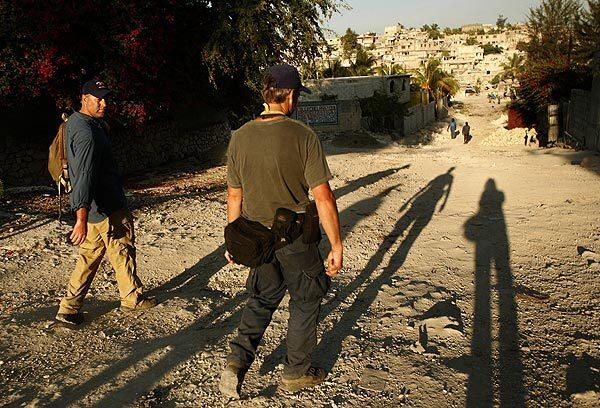
Matt Cobb, left, and Jim Clark, head out into a neighborhood to see who they can help. “We’re not delusional enough to think that we’re going to solve any big problems by coming down here,” Cobb said. “We know what we can offer is a band-aid, a little bridge to get someone through for a few days. But we’re touching people’s lives directly. Sometimes, it’s the little victories that matter.” (Carolyn Cole / Los Angeles Times)







